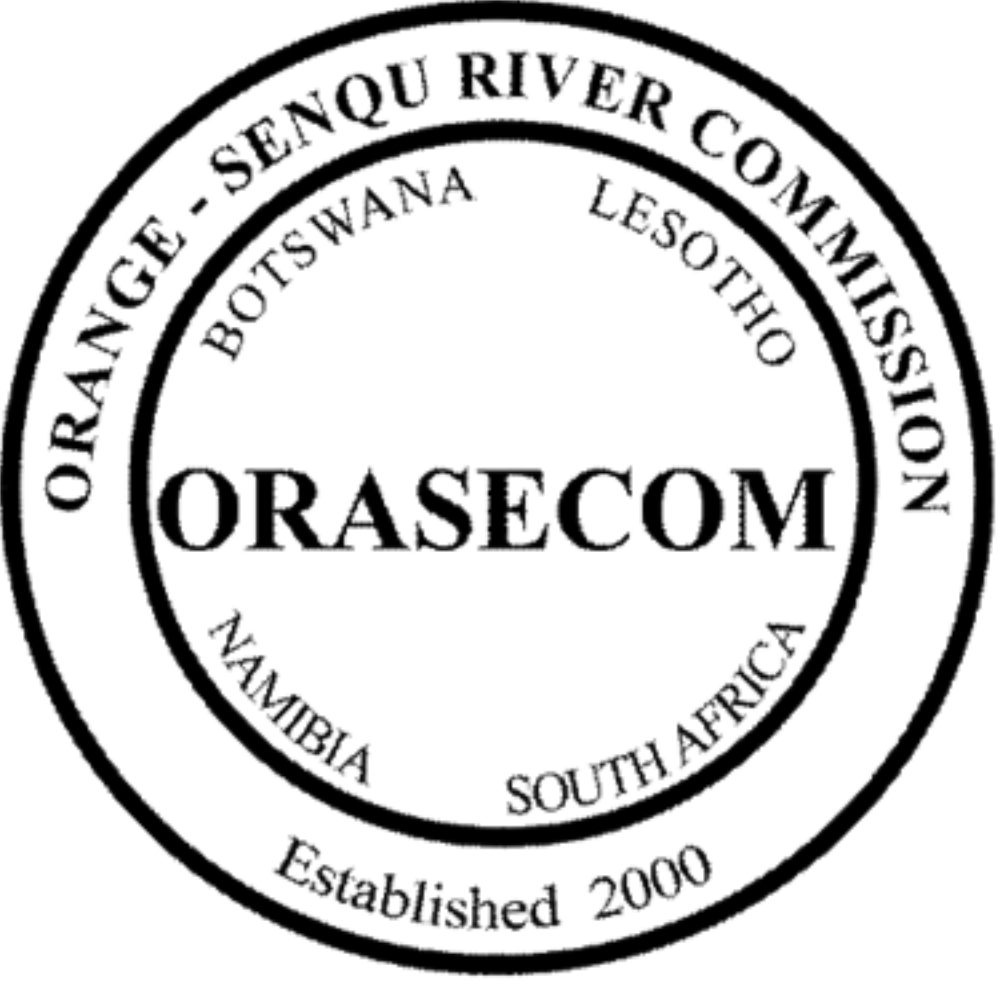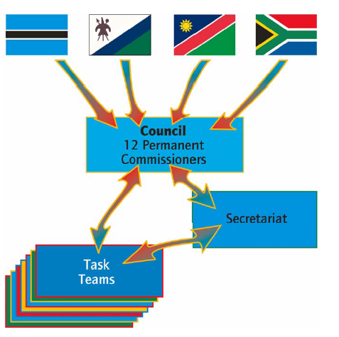Regional and International Agreements
Several regional and basin-level agreements are important to the founding and the operation of ORASECOM. These agreements are detailed below.
ORASECOM Agreement
The Orange-Senqu River Commission (ORASECOM) was formalized by the Governments of Botswana, Lesotho, Namibia and South Africa through the signing of the ‘Agreement for the Establishment of the Orange-Senqu Commission’ on November 3rd, 2000 in Windhoek, Namibia (Earle et al, 2005).
ORASECOM was the first commission to be established following the regional ratification of the SADC Protocol on Shared Water Course Systems. The Agreement refers to, and recognizes the following agreements:
- Helsinki Rules (1966)
- UN Convention on Non-Navigational Uses of International Watercourses (1997)
- The SADC Revised Protocol on Shared Watercourse Systems (2000)
SADC Revised Protocol
The Southern African Development Community (SADC) is an international organization that has been in existence since 1980 and currently comprises 15 member states: Angola, Botswana, the Democratic Republic of Congo, Lesotho, Madagascar, Malawi, Mauritius, Mozambique, Namibia, Seychelles, South Africa, Swaziland, United Republic of Tanzania, Zambia and Zimbabwe.
The SADC Secretariat consists of Directorates of Food, Agriculture and Natural Resources; Trade, Industry, Finance and Investment; Infrastructure and Services (I&S); and Social and Human Development. The SADC Water Division (WD), within the SADC Directorate of Infrastructure & Services (I&S), is tasked with overall coordination and management of the SADC Water Programme.
The revised SADC Protocol on Shared Watercourse Systems (2000) was originally developed by SADC in 1995 as part of the implementation process of the SADC Treaty. The original SADC Protocol on Shared Watercourse Systems was revised to recognize the UN Watercourses Convention. The SADC Protocol on Shared Watercourse Systems was signed in 2000 and came into force in 2003.
The SADC Protocol on Shared Watercourses promotes the establishment of shared watercourse agreements and institutions and enshrines the principles of reasonable use and environmentally sound development of the resource. It supports Integrated Water Resource Management (IWRM) and the Regional Strategic Action Plan for Integrated Water Resources Development and Management (RSAP-IWRM).
The SADC Protocol supports strengthening the principles of integrated management of shared basins with specific provisions for equitable utilization, planned measures, no significant harm, and emergency situations.
More Information (User can click on ‘More Info’ to open the full agreement: Need to obtain from ORASECOM)
UN Watercourses Convention
The UN Convention on the Law of the Non-Navigational Uses of International Watercourses (Watercourses Convention) passed in the UN General Assembly in 1997. This convention provides a framework and principles to guide basin level agreements. The Watercourses Convention is intended to be an umbrella agreement to support and sustain basin-wide cooperation. Within the Orange-Senqu River basin, South Africa and Namibia have both ratified this agreement.
The Watercourses Convention stresses principles of:
- Universal participation
- Cooperative governance
- Equity
- Peaceful dispute resolution
- Communication and environmental protection
The Watercourses Convention also supports Millennium Development Goal 7, Target 10, on sustainable access to safe water drinking water and basic sanitation.


